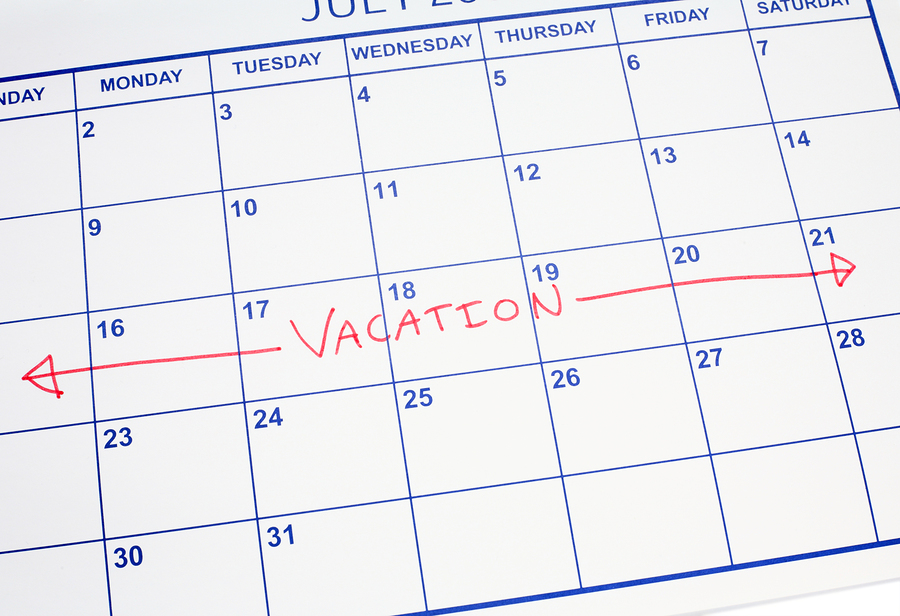Permission To Pause: Goodbye Guilt About Taking Time Off
Just because summer vacations are behind us- does not mean that the topic of time off is off of the table. If you are one of the United States employees who contributed to the 212 million un-used vacation days in 2017, you may be doing more harm to your career and personal health than you think. While it is no doubt just as stressful (sometimes more so!) to prepare to take a vacation than to simply stay in the office, the long-term benefits of a break (and we mean an un-plugged one!) are immense.
 The Road Through Relaxation, Resiliency And Results
The Road Through Relaxation, Resiliency And Results
Uber. Dropbox. Google. Tesla. Square. Facebook. There are a few things that these Silicon Valley companies have in common, namely a diverse conglomerate of campus perks and on-site services, yet also an average tenure of 2.5 years or less, according to Inc.com. This trend would seem to support the philosophy outlined by the Harvard Business Review (HBR) that resilience is linked to stopping, resting and recovering – not toughing it out and making the best of it (even amidst the 24-hour chef and free dry cleaning…).
The reasoning behind this belief is not rooted in the latest thought leadership, but in science and biology itself. With HBR defining homeostasis as ‘a fundamental biological concept describing the ability of the brain to continuously restore and sustain well-being’, it follows that we need to take certain actions to maintain equilibrium. A lack of alignment caused by overworking results in wasting physical and mental resources as our body attempts to restore balance. The true definition of ‘burnout’ is spending too much time in the performance zone and not enough time in the recovery zone; thus, you are literally burning energy to power through your current arousal level.
The impact of imbalance is a marked decrease in productivity and motivation, feelings of physical and mental exhaustion, an increased risk of health and safety problems in the workplace and less happiness. Career coaches have even analyzed the data and reported that taking time off helps you get promoted; time away enables you to put your career into perspective and return MORE motivated and productive.
Make It A Routine To Recharge
While we promise a more tactical, future blog post on actually asking for time off, let’s first explore the mental mindset to do so. Researchers Zijlstra, Cropley and Rydstedt have written about the importance of reaching both internal and external recovery periods. By their definition, “internal recovery refers to the shorter periods of relaxation that take place within the frames of the workday.” External recovery “refers to actions that take place outside of work—e.g. in the free time between the workdays, and during weekends, holidays or vacations.” In short, you need to stop strategically and not replace one form of high mental stress with another whether at work or at home.
The use of technology is one of the best ways to truly un-plug, as ironic as that seems, according to Yale Business School Researcher and Author Amy Blankson. Utilizing an app such as Instant Or Moment allows the user to see how often you are checking your phone (average is 150X per day!). Other apps such as Offtime or Unplugged force a ‘tech free zone’ by scheduling time blocks of airplane mode. Additional recommendations from the experts include not eating lunch at your desk, taking all of your accumulated time off, maintaining social support networks as well as professional ones and strengthening your emotional intelligence and identification of reactions and behaviors.
All of the suggestions above are designed to increase resiliency and thus enhance your professional results. We further argue that, moreover, the restorative actions you take serve as a model to those around you – including new employees and even your children. Chances are you want them to remember what you accomplished in the time you were in the office, not that you never left. Everyone deserves to live the life they work so hard for – and the best way to start leading this charge is by example.
Resources Used & Further Reading:
Resilience Is About How You Recharge, Not How You Endure: https://hbr.org/2016/06/resilience-is-about-how-you-recharge-not-how-you-endure
Resilience in the Workplace: How to Be More Resilient at Work: https://positivepsychology.com/resilience-in-the-workplace/
Effective Ways Employers Can Prevent Overworking Their Workforce: https://www.forbes.com/sites/forbescoachescouncil/2018/08/09/effective-ways-employers-can-prevent-overworking-their-workforce/#3e8c6d76300f
Here’s the Average Tenure for Tech Workers in Silicon Valley’s Top 15 Companies: https://www.inc.com/business-insider/tech-companies-employee-turnover-average-tenure-silicon-valley.html?source=post_page—————————
The Average Person Donates $561 to Their Employer Every Year (So Yes, That Could Include You): https://www.themuse.com/advice/average-person-donates-money-not-taking-vacation-days
